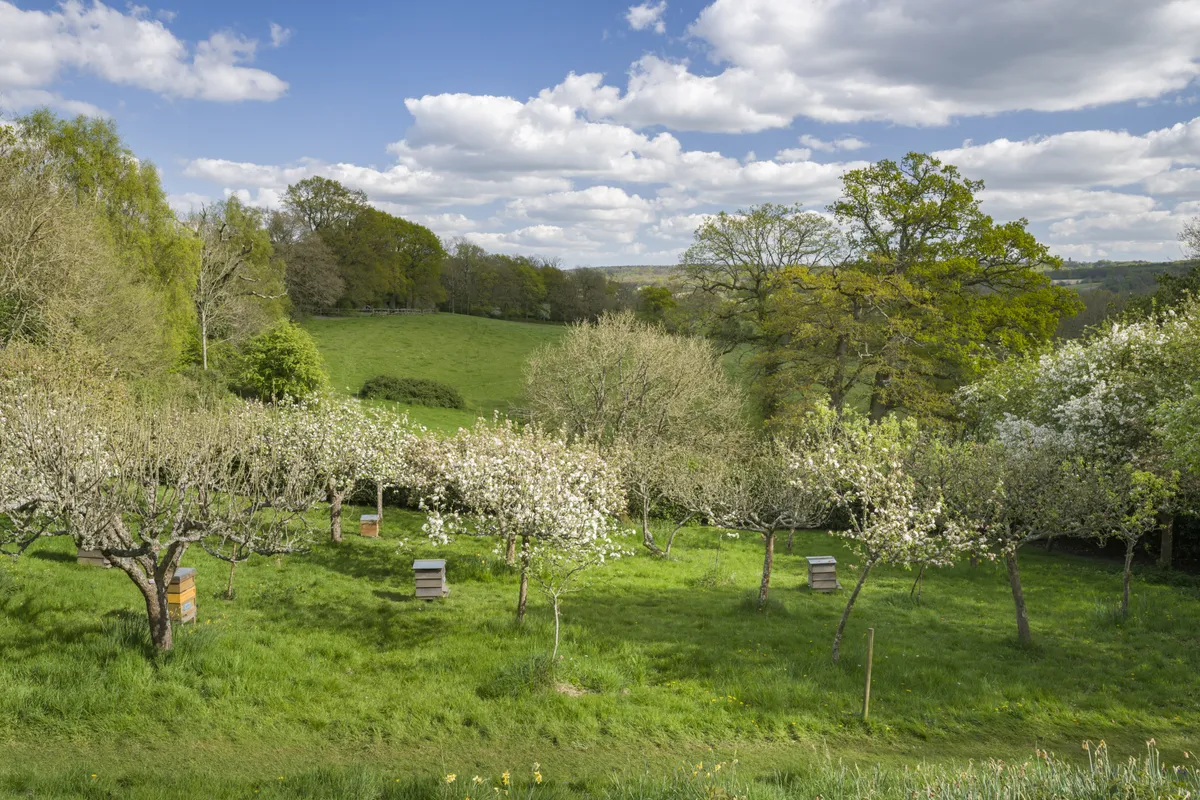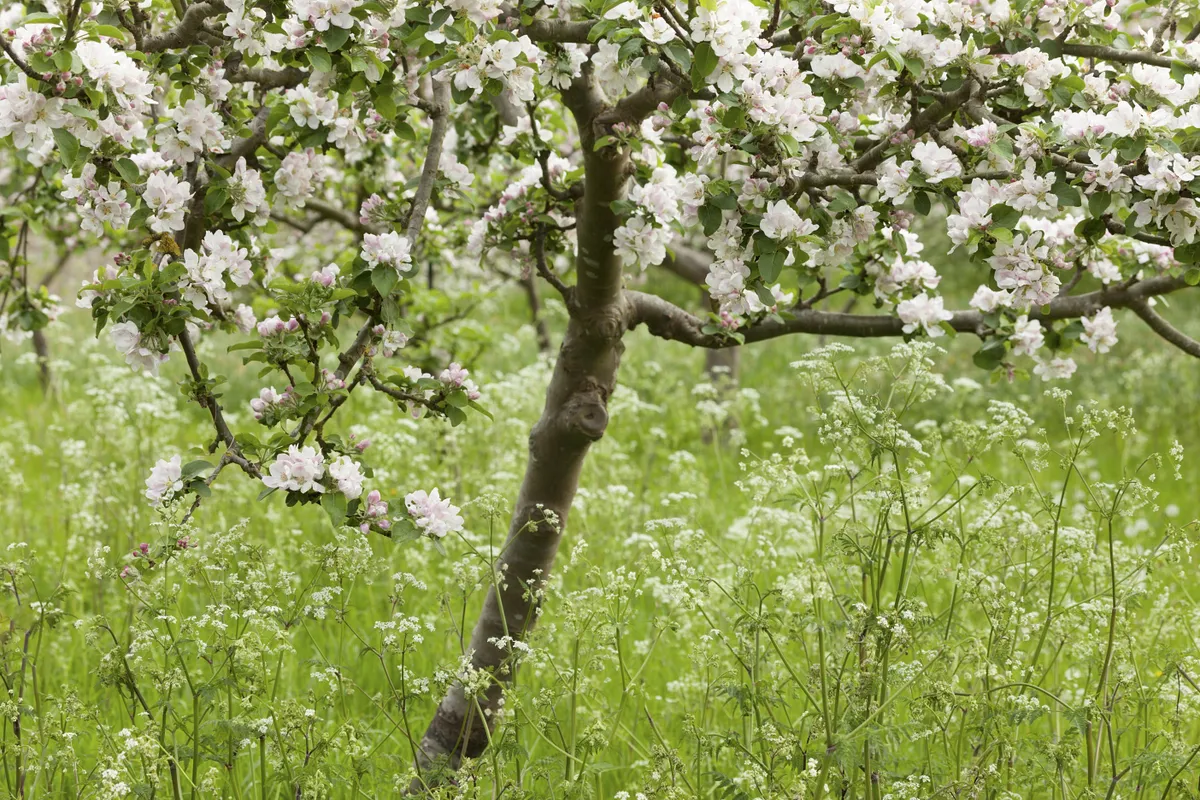England and Wales have lost 56% of their overall orchards (modern and traditional) since 1900. Traditional orchards have been hit particularly hard, experiencing a decline of 81% – an area almost the size of the West Midlands.
The research – revealed as the National Trust’s #BlossomWatch campaign gets underway this week – is the first comprehensive review of both traditional and modern orchards using artificial intelligence mapping technologies. Based on data from the National Library of Scotland’s historic map collection, People’s Trust for Endangered Species (PTES), and Natural England, the study aims to improve understanding of the historic loss of blossom across landscapes, and the impact on nature and wildlife.
“Using cutting edge technology, we now have a much better understanding of how we’ve managed landscapes in the past, which is invaluable when thinking about how to tackle the nature and biodiversity crisis that we are facing, and restoring nature,” said Tom Dommett, Head of Historic Environment at the National Trust.

The loss of orchards across England and Wales has a huge impact of wildlife. “Traditional orchards and the blossom they bring creates valuable early nectar sources for insects which are often foraging for scarce resources in the early spring,” said John Deakin, Head of Trees and Woodland at the National Trust.
“These native, historic varieties, together with other trees like blackthorn and hawthorn which also have amazing spring blossom, mature at a faster rate than other larger native species such as oak. They therefore provide an important bridge for insects that rely on their particular ecosystems which is one of the reasons why planting more blossom trees is such a vital part of our ambitions.”

The National Trust has pledged to plant four million blossoming trees as part of its commitment to plant and establish 20 million trees across England, Wales and Northern Ireland by 2030.
The charity is also planting new traditional orchards at a number of sites, including Stourhead in Wiltshire, Arlington Court in Devon, Kingston Lacy in Dorset, Brockhampton in Herefordshire, Attingham Park in Shropshire and Westhumble in Surrey.
BlossomWatch, the Trust’s annual blossom campaign, begins this week, and encourages people to enjoy and celebrate spring blossom. You can share your digital images with the charity as blossom spreads across the UK, and there are events and installations at National Trust sites, including ‘blossom hammocks’ and painting workshops.

Last year the Mayor of London Sadiq Khan and National Trust Director-General Hilary McGrady opened the London Blossom Garden and this year there will be city-wide installations in Birmingham as part of the Birmingham 2022 Festival.
The Trust is also continuing with its plans to bring more blossom back into cities – with a new project in Birmingham this spring – a city which was once described as a ‘town ringed by blossom’.
“Many of the orchards which were once on the peripheries of our towns and cities in the 18th and 19th centuries have been lost with urban expansion and often remain as map evidence or street names only,” said Annie Reilly, the National Trust’s Blossom Programme Manager.
“Here in Birmingham we are aiming to recreate botanical history, recreating the shadow of past orchards that encircled the city through ornamental cherry tree planting. Our trees will join the city’s thousands of street trees to ensure that more of the city can enjoy this fleeting moment of spring.”

For more information, visit www.orchardnetwork.org.uk/orchard-blossom-day and www.nationaltrust.org.uk/blossom-watch
